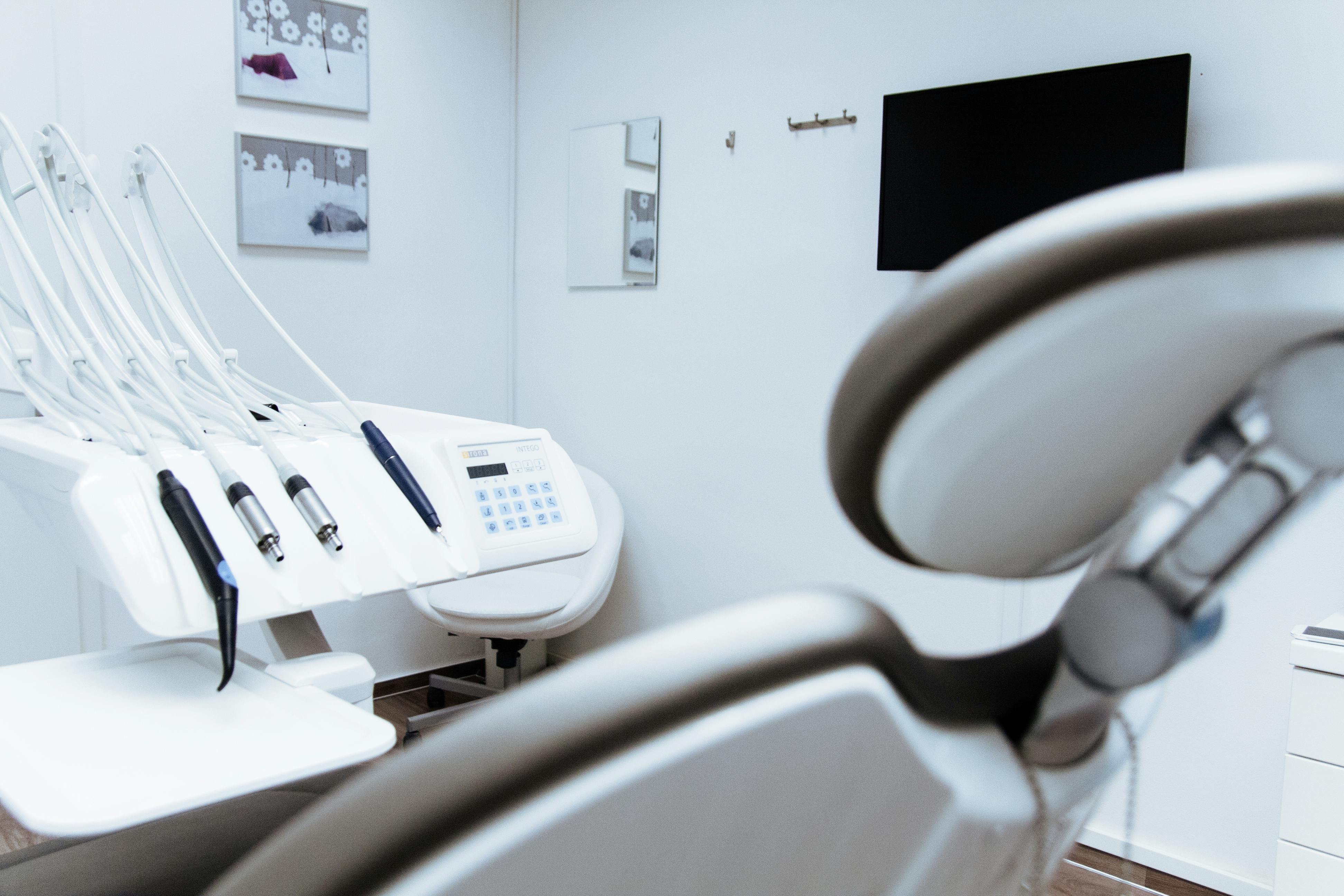Looking for a dental clinic near me can sometimes feel overwhelming, right? Whether you’re dealing with a sudden toothache or just need a routine check-up, finding the best dental care close by is crucial for your oral health and peace of mind. But how do you know which dental clinic offers top-notch services, affordable prices, and a comfortable environment? In this article, we’ll explore proven tips and insider secrets on how to find the best dental clinic near you so you don’t have to waste time or money on the wrong choice.
If you’ve ever typed “dental clinic near me open now” or “emergency dental care close by,” you’re not alone. Many people search for reliable and accessible dental services, especially when urgent problems arise. But it’s not just about convenience – quality matters just as much. What are the must-know factors to consider when selecting a local dentist? From patient reviews and advanced technologies to insurance compatibility and specialized treatments, we’ll cover everything you need to make an informed decision.
So, how can you get started? First, understand why choosing the right dental clinic near me impacts your oral health in the long run. Next, learn how to leverage online tools like Google Maps, health forums, and social media recommendations to uncover hidden gems in your neighborhood. Ready to discover the secrets to finding expert dental care close by that fits your unique needs? Let’s dive in and make your smile the best it’s ever been!
7 Proven Tips to Choose the Best Dental Clinic Near Me Without Wasting Time

Finding a good dental clinic near me can sometimes feel like looking for a needle in a haystack. You want the best care, but you don’t want to waste time checking multiple places, right? Choosing the right dental clinic is important for your oral health, and there’s lots of things to consider, more than just location. In London, where options are plenty, it can be confusing. Here are 7 proven tips to choose the best dental clinic near you without wasting time, so you can get the care you needs soon.
1. Check Qualifications and Experience of Dentists
One of the first things you should look at is the qualifications and experience of the dentists working at the clinic. Not all dental clinics have the same level of expertise. Some might specialize in cosmetic dentistry, while others focus on general dental care.
- Dentists should be registered with the General Dental Council (GDC) – this is a legal requirement in the UK.
- Look for clinics where dentists have additional certifications or have been practicing for many years.
- Experience with specific treatments (like implants, orthodontics, or root canals) matter if you need those services.
Fact: The GDC was established in 1956 to regulate dental professionals and ensure patients get safe care.
2. Location and Accessibility Is Key
When you search for “dental clinic near me,” location usually comes first in mind. But don’t just pick the closest one. Think about how easy it is to reach the clinic:
- Is it near public transport or has good parking facilities?
- Are clinic hours flexible for your schedule (evenings, weekends)?
- Accessibility for people with disabilities should also be considered.
Practical example: A clinic 2 miles away but with evening hours and easy parking may serve you better than one just 1 mile away but only open 9-5.
3. Services Offered and Technology Used
Not every dental clinic offers the same range of treatments or uses the latest tools. Some clinics still use outdated equipment which might affect the quality and comfort of your care.
Look for clinics that offer:
- Preventative care like cleanings and checkups.
- Restorative treatments such as fillings, crowns, and bridges.
- Cosmetic options like whitening and veneers.
- Advanced technology like digital x-rays, laser dentistry, or 3D scanning.
Here’s a quick comparison:
| Service Type | Traditional Clinic | Modern Clinic with Tech |
|---|---|---|
| X-Rays | Film-based x-rays | Digital x-rays (less radiation) |
| Teeth Cleaning | Manual tools | Ultrasonic scalers |
| Treatment Planning | Paper records | Digital 3D imaging |
| Patient Comfort | Basic chairs | Ergonomic dental chairs with TV/screens |
4. Read Patient Reviews and Testimonials
Reviews tells a lot about a clinic’s reputation and patient satisfaction. You might found a dental clinic near you but if previous patients had bad experiences, you should be careful.
- Check Google reviews, Facebook, or health review sites.
- Look for comments about wait times, staff friendliness, and quality of treatment.
- Beware of clinics with very few reviews or suspiciously all perfect ratings.
Historical context: Patient reviews became more influential with the rise of the internet and social media in the 2000s. Before that, word-of-mouth was the main way to find trusted dentists.
5. Compare Pricing and Payment Options
Dental care sometimes can get expensive, especially for complex treatments. It’s good to compare prices between clinics but don’t just pick the cheapest one without considering quality.
- Ask if they provide transparent pricing and written estimates.
- Check if they accept dental insurance or offer payment plans.
- Some clinics offer free consultation or initial check-up.
Example pricing outline for London clinics (approximate):
| Treatment | Average Cost (GBP) |
|---|---|
| Dental Check-up | £30 – £60 |
| Teeth Cleaning | £50 – £100 |
| Filling | £70 – £150 |
| Root Canal | £200 – £500 |
| Dental Implant | £1500 – £2500 |
6. Visit the Clinic for a Quick Tour
If you have time, visit the clinic before booking an appointment. This helps you get a feel of the place, the hygiene standards, and how friendly staff are.
Things to observe:
- Is the clinic clean and tidy?
- Are instruments sterilised properly?
- Are staff polite and helpful?
- Does the clinic feel welcoming or rushed?
This step may save you from wasting time later with a clinic that doesn’t meet your expectations.
7. Ask About Emergency Dental Care
Dental emergencies can happen anytime – a knocked-out tooth, sudden pain, or swelling. A good dental clinic near me should provide emergency dental services or at least guide you to where to go.
- Check if they offer same-day emergency appointments.
Why Finding a Trusted Dental Clinic Near Me Can Save Your Smile and Wallet

Finding a reliable dental clinic near me can be a tricky task, but it’s one of those things that really matter when it comes to protecting your smile and your wallet. People often overlook how important it is to have a trusted dental care provider close by, until they face a sudden toothache or need urgent dental work. In London, where options abound, knowing how to pick the right clinic can save you not only money but also stress and time. This article take a look on why choosing the right dental clinic nearby is essential and offer some practical tips on how to find the best care close by.
Why Does It Matter To Find A Trusted Dental Clinic Near Me?
Choosing a good dental clinic near you is more than just convenience. Dental health directly impacts your overall wellbeing; poor dental care can lead to infections, gum diseases, and even heart problems. However, finding the wrong clinic might cost you more in the long run because of subpar treatments or hidden fees.
Historically, dentist offices used to be few and far between, making people travel far for care. Today, many clinics pop up everywhere, but quality varies greatly. You doesn’t want to gamble your health on the cheapest or closest option without checking credentials.
Here’s why a trusted dental clinic near your home or work saves you money and protects your smile:
- Early detection of dental problems, avoiding complex treatments later.
- Transparent pricing avoiding surprise bills.
- Access to emergency care without delay.
- Personalized treatment plans based on your dental history.
- Hygiene and safety standards that protect you from infections.
How To Find The Best Dental Clinic Near Me: A Step-By-Step Guide
Finding the best dental clinic close to you needn’t be frustrating. Follow this simple outline to narrow down your options:
1. Search Online and Read Reviews
Look for clinics with good ratings on Google, Yelp, or local health directories. Don’t just rely on star ratings—read what people said about their experience.
2. Check Credentials and Services
Make sure the dentists are registered with the General Dental Council (GDC) in the UK. Also, verify if the clinic offers the treatments you need, like orthodontics, implants, or cosmetic dentistry.
3. Visit The Clinic
If possible, visit the clinic to see the cleanliness, friendly staff, and modern equipment. First impressions matter and a quick tour can reveal a lot.
4. Ask About Pricing
Get clear information about costs for consultations, treatments, and any payment plans. Some clinics offer free initial consultations or NHS options.
5. Evaluate Location and Hours
Consider how close the clinic is and if their opening hours fit your schedule. Emergency availability is also a plus.
Popular Dental Services Offered in London Clinics
Many dental clinics in London provide a wide range of services, but here’s a quick list of common treatments you might find:
- Routine check-ups and cleanings
- Fillings and root canals
- Teeth whitening and veneers
- Orthodontics (braces and aligners)
- Dental implants and dentures
- Emergency dental care
- Pediatric dentistry for kids
Knowing what you need helps narrow down which clinic suits you best.
Comparison Table: NHS vs Private Dental Clinics in London
| Feature | NHS Dental Clinics | Private Dental Clinics |
|---|---|---|
| Cost | Generally lower, fixed prices | Can be expensive, varies by clinic |
| Waiting Times | Longer waiting periods | Usually quicker appointments |
| Treatment Options | Limited to essential treatments | Wide range including cosmetic treatments |
| Emergency Care | Available but sometimes limited | Often better emergency access |
| Quality of Service | Good, but can vary | Often more personalized |
This table help people decide which route fits their budget and needs.
Practical Tips to Save Money Without Compromising Your Dental Care
You don’t have to spend a fortune to get good dental care. Here some ways to save money while maintaining your oral health:
- Join a dental plan or insurance if you can. It often covers routine work and discounts on big treatments.
- Don’t ignore small issues; early treatment is cheaper than fixing big problems.
- Use NHS services when possible, especially for routine checkups and cleanings.
- Look for clinics offering interest-free payment plans or discounts for new patients.
- Maintain a good oral hygiene routine at home to reduce visits.
Why Local Matters: The Benefits Of Having A Nearby Dental Clinic
Having a dental clinic near your home or workplace isn’t just about convenience. It lead to better health outcomes because you more likely to attend regular checkups and follow-up appointments. Emergencies like toothaches or broken teeth become less stressful when you know exactly where to go.
London’s busy lifestyle means spending hours commuting for dental care can be a hassle, leading some people to avoid treatment altogether. A
How to Spot Top-Rated Dental Clinics Near Me for Emergency and Routine Care

Finding a trustworthy dental clinic near me can be a challenge, especially if you suddenly need emergency dental care or routine check-ups. You don’t want to waste time searching when pain or discomfort hits. So how do you spot those top-rated dental clinics in London that offer both quick emergency responses and reliable everyday dental services? It’s not always obvious, and many people just end up choosing the first place that pop up on Google. But there are better ways to make sure you get the care you deserve, nearby and with professionals you can trust.
Why Finding a Good Dental Clinic Matters
Dental health isn’t just about having a bright smile; it’s closely linked to your overall well-being. Untreated dental problems can lead to infections, heart diseases, and other health issues. But not every dental clinic provides the same quality or speed of care. Emergency dental needs—like a sudden toothache or injury—require urgent attention, while routine care is all about prevention, like cleanings and checkups.
Historically, dentistry was considered a luxury, but now it’s a crucial healthcare component available almost everywhere in London. The rise of private dental clinics and NHS-affiliated ones means patients have more choice than ever, but also more confusion.
What To Look For in a Dental Clinic Near Me
When you search for “dental clinic near me,” you want to make sure the clinic ticks several important boxes. Here are some criteria that can help you spot the best ones:
- Location & Accessibility: It should be close enough to reach quickly, especially for emergencies. Check transportation options and parking availability.
- Emergency Services: Does the clinic offer 24/7 emergency care or at least same-day appointments? This is a must.
- Dentists’ Qualifications: Look for clinics with registered dentists who are members of recognised professional bodies like the General Dental Council (GDC) in the UK.
- Range of Services: From fillings and root canals to cosmetic dentistry and orthodontics, a good clinic usually offers comprehensive care.
- Patient Reviews & Ratings: Online platforms like Google Reviews, NHS website, or independent health forums provides real patient feedback.
- Cleanliness & Equipment: Modern dental clinics invest in up-to-date technology and maintain strict hygiene standards.
- Cost & Insurance: Transparent pricing and acceptance of NHS or private insurance plans make treatments more affordable.
How To Use Online Tools to Find Top-Rated Dental Clinics
Nowadays, most people start their search online. But not all “top” clinics really are the best. Here’s practical example of how you can filter your options:
- Go to Google or Bing.
- Type “dental clinic near me” or “emergency dental care London”.
- Check the star ratings and number of reviews.
- Visit each clinic’s website to confirm services and check dentist credentials.
- Use NHS choices website for clinics registered under NHS (if you prefer NHS care).
- Call the clinic to ask about emergency availability and pricing.
- Compare at least 3 or 4 clinics before making a decision.
Comparing Emergency and Routine Dental Care
| Aspect | Emergency Dental Care | Routine Dental Care |
|---|---|---|
| Purpose | Immediate treatment for pain, injury | Prevention, regular check-ups |
| Availability | Often 24/7 or extended hours | Usually by appointment during business hours |
| Treatments Offered | Tooth extraction, pain relief, infection control | Cleanings, x-rays, fillings, oral exams |
| Cost | Typically higher due to urgency | Lower, sometimes covered by NHS or insurance |
| Importance | Prevents worsening of acute problems | Maintains overall dental health |
You can see why knowing which clinic does what best is important. Some clinics specialize in emergency care, others focus on routine, and a few do both excellently.
Practical Tips For Visiting Your Local Dental Clinic
- Always bring previous dental records if you have them—this helps dentists understand your history.
- Don’t wait till pain becomes unbearable; early visits saves money and discomfort.
- Ask about follow-up care and what to do if pain returns.
- Keep a list of emergency clinics you’ve found on your phone or at home.
- If you have special needs, such as anxiety or mobility issues, check if the clinic accommodates them.
Why Patient Experience Matters
You might not think about it until you have a bad experience, but how the staff treat you affects your willingness to return. Friendly receptionists, clear explanations from dentists, and a relaxed environment all contribute to better dental care. Sometimes a clinic has great reviews but the atmosphere is cold or rushed, which can be stressful.
Historical Evolution of Dental Clinics in London
Dental care in London has come a long way since the 18th century when barbers also acted as dentists. The first professional
What No One Tells You About Dental Clinics Near Me: Secrets to Quality Treatment

If you ever searched “dental clinic near me” hoping to find quick and reliable care, you probably noticed there’s more to it than just picking the closest place. Dental clinics are everywhere in London, but not all of them offers the same quality of service or comfort. What no one tells you about dental clinics near me is that the best treatment often depends on things you might not think about, like the clinic’s technology, the dentists’ experience, or even the vibe of the place. So, how do you find the best care close by without getting overwhelmed?
Why Finding a Good Dental Clinic Near Me is More Complicated Than You Think
Most people just want a dentist close to home or work. But proximity isn’t everything. Sure, having a dental clinic nearby saves time and travel hassle, but what about the quality of treatment? London, being a huge city, have clinics ranging from small independent practices to large multi-specialty centers. Each one has different strengths and weaknesses.
Historically, dentistry has evolved a lot. Back in the 19th century, dental care was mostly about pulling teeth and dealing with pain. Nowadays, clinics focus on prevention, cosmetic treatments, and advanced procedures like implants or orthodontics. But not all clinics keep up with these innovations. Some still use outdated equipment or have limited services. That’s why just searching “dental clinic near me” is not enough to guarantee good care.
Secrets to Quality Treatment at Dental Clinics Near Me
Here is what many patients don’t realize or get told when picking a dental clinic:
- Technology Matters: Clinics with digital X-rays, 3D scanning, and laser dentistry provide faster, less painful, and more precise treatments. This technology reduces appointment times and improves diagnosis accuracy.
- Dentists’ Expertise: Look for clinics where dentists have additional certifications or specializations, like endodontics or pediatric dentistry. Experience counts, especially for complex cases.
- Patient Reviews and Reputation: Word of mouth and online reviews can be helpful but sometimes misleading. It’s better to check multiple sources and see if the clinic responds professionally to feedback.
- Cleanliness and Comfort: It may sound obvious, but some clinics overlook hygiene or patient comfort. A visit to the clinic before booking can reveal a lot about their standards.
- Emergency Care Availability: Dental emergencies don’t wait. The best clinics offer same-day appointments or 24/7 emergency services.
How To Find The Best Care Close By
When you type “dental clinic near me” in your search bar, here is a practical plan to get more than just a list of names:
- Make a shortlist: Choose 3 to 5 clinics based on location and basic services offered.
- Check qualifications: Verify dentists’ credentials on professional sites like the General Dental Council (GDC) in the UK.
- Read reviews carefully: Focus on detailed reviews mentioning treatment quality, waiting times, and staff behavior.
- Visit or call: Speak directly with clinic staff. Ask about technology they use, insurance acceptance, and treatment options.
- Compare pricing: Dental treatment costs vary a lot. Request estimates and check if they offer payment plans.
- Look for specializations: If you need specific care (like orthodontics or implants), confirm the clinic has the right experts.
- Consider convenience: Check appointment availability, public transport options, and parking facilities.
Comparison Table: Common Dental Clinic Types in London
| Type of Clinic | Pros | Cons |
|---|---|---|
| Independent Practice | Personalized care, often cheaper | Limited specialists, fewer tech |
| Corporate Chains | Advanced technology, multiple services | Less personalized, can be busy |
| Hospital Dental Units | Complex case expertise, emergency care | Longer waiting times, less flexible |
| Specialized Clinics | Expert care in specific fields | May be expensive, limited general care |
Practical Tips for Your Visit to a Dental Clinic Near Me
- Bring your dental records if you are switching clinics. This saves time and avoids repeat X-rays.
- Don’t hesitate to ask questions about procedures or costs. Good clinics welcome inquiries.
- If you have dental anxiety, look for clinics offering sedation dentistry or a calming environment.
- Schedule regular check-ups rather than waiting for problems. Prevention is cheaper and less painful.
- Use dental insurance or NHS options wisely. Some clinics provide both private and NHS treatments with different pricing.
Why Location Isn’t The Only Factor When Searching “Dental Clinic Near Me”
Many assume the closest dental clinic is the best option but London’s diverse areas have different standards. For example, a clinic in central London may offer cutting-edge technology but charge higher fees. Meanwhile, a clinic in suburban areas might be more affordable but lack certain specialists. Sometimes traveling a bit further means better treatment and long-term savings.
Also,
Affordable Dental Clinic Near Me: Where to Find Expert Care That Won’t Break the Bank

Looking for an affordable dental clinic near me can feel like a real challenge sometimes, especially in a big city like London where prices seems always to be high. But worry not, finding expert dental care close to you without spending a fortune is possible — it just takes a little know-how and patience. Dental health is super important but often people delay treatment because they think it’s too expensive or complicated to find the right place nearby. This guide will help you understand how to find the best dental clinic near you that offers quality care at a price you can manage.
Why Affordable Dental Clinics Matter
Dental care isn’t just about having a pretty smile. It affects overall health, confidence, and daily life. In the UK, dental treatment costs can vary widely depending on the clinic and the services provided. Many people avoid going to the dentist because they fear high bills or long waiting times. Affordable dental clinics aims to bridge this gap by providing treatments that balance cost and quality.
Historically, dental care in London has been expensive due to higher operational costs and demand. However, the rise of community health services and private clinics with flexible payment plans means more options now exist for patients looking for budget-friendly options.
How To Find The Best Dental Clinic Near You
Finding a good dental clinic nearby involves more than just searching “dental clinic near me” online. You need to consider several factors to make sure you’re getting expert care without breaking the bank.
Check Reviews and Ratings
Patient reviews on Google, Yelp, or local forums often reveal the real experience with the clinic. Look for clinics with high ratings but also read some negative reviews — sometimes they point out important details you won’t find on the clinic’s website.Compare Prices and Services
Different clinics charge differently for the same service. Some might offer free consultations or discounts on initial visits. Always ask for a price list or a treatment plan before agreeing to anything.Look For NHS or Hybrid Clinics
NHS dental clinics provide treatments at a fixed price, which is usually cheaper than private clinics. Some places have hybrid models offering both NHS and private options, which can be a good middle ground.Ask About Payment Plans
Many affordable clinics now offer monthly payment plans or financing options to spread out the cost of more expensive treatments like crowns or implants.Location and Accessibility
A clinic close to your home or workplace saves time and travel costs. Also consider the opening hours, especially if you need appointments outside typical office hours.
Examples of Affordable Dental Services in London
To give you an idea of what you might find, here are some common dental treatments and their approximate costs in London’s affordable clinics:
| Treatment | NHS Price Range (GBP) | Private Price Range (GBP) |
|---|---|---|
| Dental Check-up | £23.80 – £65.20 | £40 – £90 |
| Teeth Cleaning (Scaling) | £23.80 – £65.20 | £50 – £120 |
| Tooth Extraction | £23.80 – £65.20 | £60 – £150 |
| Composite Filling | £23.80 – £65.20 | £50 – £150 |
| Root Canal Treatment | Not fully covered | £200 – £600 |
| Dental Crowns | Not covered by NHS | £300 – £800 |
Note: Prices vary based on clinic location, complexity, and patient condition.
Practical Tips When Searching “Dental Clinic Near Me”
- Use Location-Based Search Tools: Google Maps or dental-specific apps can help you find clinics near you quickly.
- Visit Multiple Clinics: Don’t settle for first clinic you find. Visit or call several places to compare.
- Check If They Accept New Patients: Some popular clinics have waiting lists or limited slots for new patients.
- Ask About Emergency Services: Good clinics often provide emergency care, which can be a lifesaver in dental pain situations.
- Verify Dentist Qualifications: Check if the dentists are registered with the General Dental Council (GDC) to ensure they are qualified professionals.
Comparison of NHS vs Private Dental Clinics in London
| Feature | NHS Dental Clinics | Private Dental Clinics |
|---|---|---|
| Cost | Fixed, generally lower fees | Varies, often higher but flexible |
| Treatment Options | Limited to essential services | Wide range including cosmetic dentistry |
| Waiting Times | Can be long due to demand | Usually shorter and more flexible |
| Appointment Availability | Fixed hours, sometimes limited | Extended hours including weekends |
| Quality of Equipment | Basic but effective | Often more advanced and comfortable |
What Makes a Dental Clinic Truly Affordable
Conclusion
In conclusion, finding a reliable dental clinic near you is essential for maintaining optimal oral health and ensuring timely care. Whether you need routine check-ups, cosmetic procedures, or emergency dental services, choosing a clinic that offers experienced professionals, advanced technology, and a comfortable environment can make all the difference. Proximity is important not only for convenience but also for consistent follow-ups and immediate attention when dental issues arise. Additionally, many local clinics provide personalized care and flexible appointment options to fit your busy schedule. Don’t wait for dental problems to escalate—take the proactive step today by researching and visiting a trusted dental clinic near you. Prioritizing your oral health now will lead to a brighter smile and improved overall well-being in the long run. Start your search today and experience the benefits of accessible, quality dental care right in your neighborhood.






















